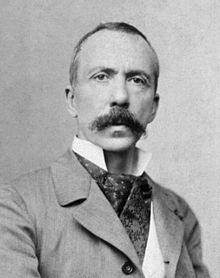
Back زينوغلوسيا Arabic Xenoglòssia Catalan Xenoglosie Czech Xenoglossie German Xenoglosia Spanish زنوگلاسی Persian Xénoglossie French זנוגלוסיה HE Xenoglosszia Hungarian Xenoglosia ID

Xenoglossy (/ˌziːnəˈɡlɒsi, ˌzɛ-, -noʊ-/),[1] also written xenoglossia (/ˌziːnəˈɡlɒsiə, ˌzɛ-, -noʊ-/)[2][3] and sometimes also known as xenolalia, is the supposedly paranormal phenomenon in which a person is allegedly able to speak, write or understand a foreign language that they could not have acquired by natural means. The term derives from the Ancient Greek xenos (ξένος), "foreigner" and glōssa (γλῶσσα), "tongue" or "language".[4] The term xenoglossy was first used by French parapsychologist Charles Richet in 1905. Accounts of xenoglossy are found in the New Testament, and contemporary claims have been made by parapsychologists and reincarnation researchers such as Ian Stevenson. Doubts have been expressed that xenoglossy is an actual phenomenon, and there is no scientifically admissible evidence supporting any of the alleged instances of xenoglossy.[5][6][7][8]
Two types of xenoglossy are distinguished. Recitative xenoglossy is the use of an unacquired language incomprehensibly, while responsive xenoglossy refers to the ability to intelligibly employ the unlearned language as if already acquired.[9]
- ^ Cf. analogously pronounced entry xenophobic in Jones, Daniel (2003) [1917], Peter Roach; James Hartmann; Jane Setter (eds.), English Pronouncing Dictionary, Cambridge: Cambridge University Press, ISBN 3125396832
- ^ Cf. analogously pronounced entry xenophobia in Jones, Daniel (2003) [1917], Peter Roach; James Hartmann; Jane Setter (eds.), English Pronouncing Dictionary, Cambridge: Cambridge University Press, ISBN 3125396832
- ^ "xenoglossia". Dictionary.com Unabridged (Online). n.d.
- ^ γλῶσσα, Henry George Liddell, Robert Scott, A Greek-English Lexicon, on Perseus
- ^ Zusne, Leonard; Jones, Warren. (1989). Anomalistic Psychology: A Study of Magical Thinking. Lawrence Erlbaum Associates. pp. 145–146. ISBN 978-0805805079
- ^ Thomason, Sarah. "Xenoglossy". In Gordon Stein. (1996). The Encyclopedia of the Paranormal. Prometheus Books. ISBN 1573920215
- ^ Melton, J. Gordon (1 January 2007), The Encyclopedia of Religious Phenomena, Visible Ink Press, pp. 359–, ISBN 978-1578592098
- ^ Hines, Terence. (2003). Pseudoscience and the Paranormal. Prometheus Books. p. 109. ISBN 1573929794
- ^ Matlock, James G. (2019-06-15). Signs of Reincarnation: Exploring Beliefs, Cases, and Theory. Rowman & Littlefield. ISBN 978-1538124802.